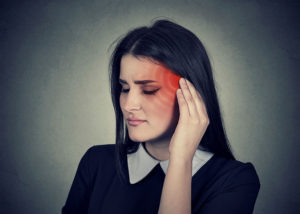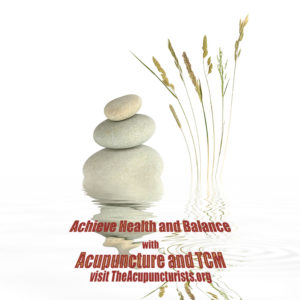“Old friends, old friends sat on their park bench like bookends; Can you imagine us years from today, sharing a park bench quietly? Old friends, memory brushes the same years, silently sharing the same fears.”
(Songwriter: Daniel Michael Clark. Performed by Simon and Garfunkel)
By Susan Tretakis – One of the things about getting older is that an entire new world of illnesses open up to you. And while my friends and I do not ordinarily share a park bench – which, incidentally, common sense tells me we should do – more often or not we are sharing time and space over coffee, lunch or dinner.
Sometimes, we share cyber space over a text or email.
And lately, I have been listening to stories of friends suffering from tinnitus. Tinnitus seems to have no one audience – my friends are both male and female and range in age from 45 to 73. Some work, some are retired, some lead stress- free lives while others vibrate with stress caused by high powered jobs. The only commonality is that each of them has visited their respective Western Doctors with no luck.
WebMd defines tinnitus as the “the sensation of hearing ringing, buzzing, hissing, chirping, whistling, or other sounds. The noise can be intermittent or continuous, and can vary in loudness. It is often worse when background noise is low, so you may be most aware of it at night when you’re trying to fall asleep in a quiet room.”
The Mayo Clinic defines two kinds of tinnitus:
- Subjective tinnitus is tinnitus only you can hear. This is the most common type of tinnitus. It can be caused by ear problems in your outer, middle or inner ear. It also can be caused by problems with the hearing (auditory) nerves or the part of your brain that interprets nerve signals as sound (auditory pathways).
- Objective tinnitus is tinnitus your doctor can hear when he or she does an examination. This rare type of tinnitus may be caused by a blood vessel problem, a middle ear bone condition or muscle contractions.
What bothered me was just how little there was on the successful Western treatment of tinnitus. Much of the literature seems to fall back on the fact that tinnitus is “annoying” and recommends that patients simply come to terms with it. My friends tell me they can map their “buzzing” and tie them to specific events, specific foods, and, sometimes, even specific activities.
 Google tells “tinnitus affects about 1 in 5 people. Tinnitus isn’t a condition itself — it’s a symptom of an underlying condition, such as age-related hearing loss, ear injury or a circulatory system disorder. Although bothersome, tinnitus usually isn’t a sign of something serious.” The literature went on to suggest that “The phantom noise may vary in pitch from a low roar to a high squeal, and you may hear it in one or both ears. In some cases, the sound can be so loud it can interfere with your ability to concentrate or hear actual sound. Tinnitus may be present all the time, or it may come and go.”
Google tells “tinnitus affects about 1 in 5 people. Tinnitus isn’t a condition itself — it’s a symptom of an underlying condition, such as age-related hearing loss, ear injury or a circulatory system disorder. Although bothersome, tinnitus usually isn’t a sign of something serious.” The literature went on to suggest that “The phantom noise may vary in pitch from a low roar to a high squeal, and you may hear it in one or both ears. In some cases, the sound can be so loud it can interfere with your ability to concentrate or hear actual sound. Tinnitus may be present all the time, or it may come and go.”
I have to feel for my friends; this has to be annoying, irritating and an entire host of other uncomfortable adjectives. I wondered if Traditional Chinese Medicine and acupuncture could help.
“In Chinese medicine, chronic Tinnitus is believed to be caused by kidney weakness, according to Pacific College of Oriental Medicine Faculty Member Dr. Mohammed Javaherian. Acupuncture is recommended and treatments will focus most likely on the kidney meridians, as well as on points along the liver and gallbladder meridians to help strengthen the root of the problem.
Tinnitus is linked to nerve and touch sensitivity. For some people, clenching one’s jaws or applying pressure to the neck can bring on or reduce tinnitus episodes. Acupuncture patients with this disorder will have a high response rate to the nerve’s natural response to pressure and the disorder’s sensitivity to certain points. The practice of acupuncture is based on the stimulation of certain points on the body, as well as meridians and channels. Stimulating specific points (which are determined based on the patient’s unique case) can rebalance the qi (one’s life force) and alleviate the source of the problem. It is integral in traditional Chinese medicine to treat the origin of an ailment as well as the symptoms, and TCM has several theories as to what causes tinnitus.”
TCM practitioners believe that “in more temporary cases of Tinnitus, high emotional strain or sudden anger can lead to a ringing in the ears. Also, diet can have an effect; eating excessively greasy foods or irregular eating can lead to Phlegm (a TCM term that commonly refers to a retention in body fluid), which prevents the rising of clear qi to the head (resulting in the “phantom noise” associated with tinnitus). Overworking or excessive physical strain can lead to a nerve disturbance, causing tinnitus. Lastly, trauma is a common cause of the ringing noise associated with this disorder.”
As with all medical issues, Traditional Chinese Medicine stresses prevention. If you, like my friends, are beyond the preventative stage, there are suggestions as to what will make your tinnitus from worsening.
To name a few: “Prescriptive drugs – even OTC drugs- are a major culprit. The primary offenders are aspartame, aspirin, steroids, anti-depressants, anti-anxiety medications, antihistamines, anti-seizure drugs, antibiotics, steroids and pain killers. Some tinnitus is due to circulatory problems including low blood volume. High blood pressure, cholesterol and triglycerides may be a factor. Continued loud music, and other noises may also contribute to tinnitus. Using earphones that go into the ear canal are particularly dangerous. Protect your ears!”
What amazes me as I read through the above list is how many of these drugs – each taken for a specific illness – my acupuncturist has weaned me off from these past two years. “Off” from both the need and the so-called cure. This point has not been lost on researchers; in fact, it has prompted exploration on the therapeutic effect of acupuncture and Chinese herbs.
“From the perspective of Traditional Chinese Medicine, chronic tinnitus is considered as a circulatory problem around the ear, neck or shoulder region. The ears are the openings of the kidney on the body surface, and they are important pivot locations for the meridians to communicate with each other. The TCM practitioner believes that tinnitus is not an auditory disease, but is often related to certain channels and a particular organ. Both Acupuncture and Chinese therapy have been shown effective for tinnitus. Sometimes acupuncture points under the ear lobe are selected and at other times acupuncture points on the arms and legs are chosen. Furthermore, Gingko Biloba, also known as Gingko or Maidenhair, can help stabilize hearing loss and tinnitus ringing by reducing capillary blood circulation.”

TCM does not simply focus on tinnitus as a comprehensive illness. A qualified and compassionate TCM doctor will explain and treat the root cause of YOUR tinnitus, be it a vitamin deficiency, a weak nerve or nerve damage. “Pharmacological drugs and steroids are not the only option. Don’t be surprised if your TCM doctor brings up your diet; he/she will probably recommend some diet changes.”
Once again, I left thinking at how simple it as a concept, and yet how difficult it is for many of us to accept, that all things in our body and mind are so deeply related. It’s a TCM lesson that is reinforced for me each and every day.
Here’s what I do know without a doubt: if Care Wellness Center has gift cards available for purchase, then I can safely say my Hanukah and Christmas shopping is done for the year – gifts hopefully exchanged “with old friends, sitting on a park bench.”
The Acupuncturists at Care Wellness Center serve the South Florida communities of Margate, Coral Springs, Coconut Creek, Tamarac, and Parkland. Consultations are always free.
Learn how Chinese Herbs treat Tinnitus
Sources:
- https://www.webmd.com/a-to-z-guides/understanding-tinnitus-basics#1
- https://www.mayoclinic.org/diseases-conditions/tinnitus/symptoms-causes/syc-20350156
- https://www.pacificcollege.edu/news/blog/2015/03/29/whats-ringing-tinnitus-and-how-tcm-can-help
- http://dremilykane.com/2002/05/10/top-five-remedies-for-tinnitus/
- http://www.healthcmi.com/Acupuncture-Continuing-Education-News/1826-acupuncture-and-herbs-quiet-tinnitus
- https://www.pingminghealth.com/article/273/which-internal-organ-dysfunction-relates-to-tinnitus/
- https://www.chinaeducenter.com/en/cedu/tcm_treatment_tinnitus.php
- http://www.natureandhealth.com.au/health/tinnitus-a-tcm-perspective
- https://www.zeel.com/t/acupuncture/expert-answers/how-effective-is-accupuncture-in-stopping-tinnitus
